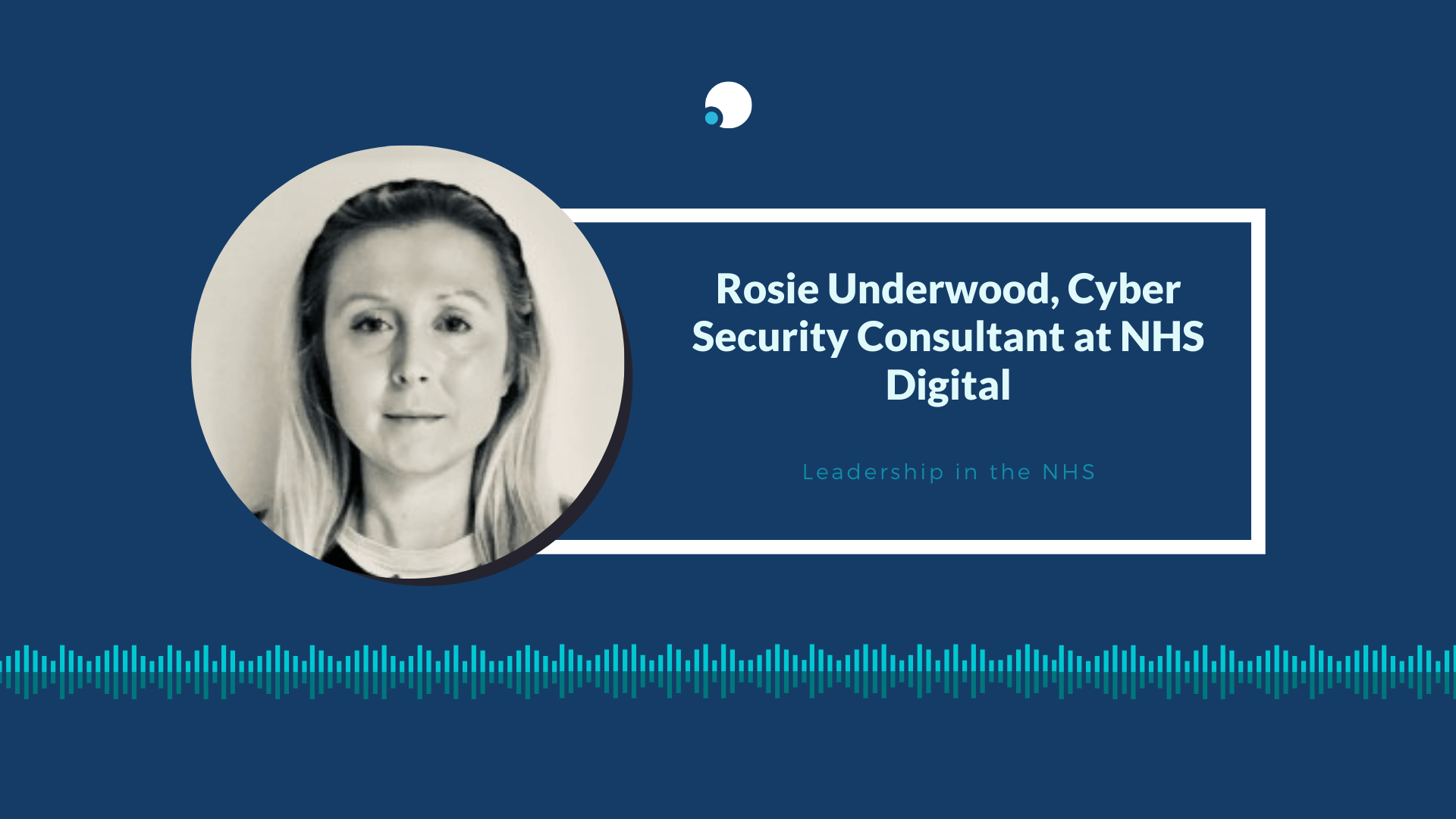
Rosie’s story is part of a series of articles highlighting the careers of female tech leaders within the NHS. We’ve brought together these stories in an effort to prove that the route to leadership is never a straight line.
With a background in digital data and technology, Rosie has worked the bulk of her career inside the NHS in a number of roles. Previously, she was a database manager for the malignant hyperthermia unit, which involved creating a relational database to research the hyperthermic reaction to anaesthetics. After that, Rosie moved into the Digital Delivery role at NHS Digital before moving into cybersecurity.
Without much formal experience in cybersecurity, Rosie was brought in as a project manager and very quickly learned on the job with a strong support network around her. Rosie considers herself incredibly fortunate to have met a number of people during her career, specifically in cybersecurity, who have believed in her, given her the chance to develop but more importantly championed and supported her throughout.
“For the most part your career is driven by yourself but sometimes you need somebody to take a chance and give you the opportunity to grow and develop.”
It’s a common debate: do you need to have a high-level of technical knowledge to lead a technical team?
For Rosie, who quickly stepped up into a leadership role in the cybersecurity position, this support network was key to the continued success of her projects despite a lack of formal knowledge.
“Make sure you’ve got the right people around you that fit all the different parts of the programme. I don’t know everything, but I do understand people’s strengths and how the organisation works. Bringing those two together means I can build strong relationships that the programme lives and dies on.”
Another core tenant of Rosie’s leadership style is trust.
Trust cements relationships by allowing people to live and work together, feel safe and belong to a group. Trust in a leader allows organizations and communities to flourish, while the absence of trust can cause fragmentation. That’s why we need to trust our leaders, our family members, our friends and our co-workers, albeit in different ways.
“you have to be able to trust and empower those people. I think one thing we did well was to ask everyone working on the programme: ‘Why do you actually think we're doing this programme?’ We weren’t expecting an answer but I think by making it clear what the aims really were, it brought people on the journey.”
Rosie, who has been in this position just over three years, is leading on a number of different security technologies across the NHS estate. Most notably, Rosie is leading on one of the largest national security programmes the NHS has seen by delivering a data security centre.
Cybersecurity is notorious for being a male-dominated field. According to Cybersecurity Ventures, there will be up to 3.5 million job openings by 2021. Meanwhile, women make up only 20% of the cybersecurity workforce. While that's up from a mere 11% in 2013, there's still a lot of opportunities to be seized in cybersecurity careers.
For Rosie, who is regularly the only woman in the room, it’s a big challenge to gather the confidence to find her voice.
“It’s a personal battle. I can come off a call and not have said anything. Even though I’ve taken everything I needed from the call, it’s still annoying.”
Rosie, who is very much breaking ground in the cybersecurity space, believes it’s about putting one foot in front of the other and muscling through.
“If I was to look back 5 years, I’d never have put myself here. I know if I stay resilient, I’ll get where I need to be in time.”
Rosie, who never likes to remain stagnant, has worked hard with each new challenge she has sought. Along each step of the way, Rosie has made seeking mentors, advocates and allies a priority.,
Good mentors can be pivotal during major junctures of your life, both personally and professionally. They can steer you clear of disaster, provide prescient views of the future that you can’t see, and give you support when you need it the most.
Everyone can find mentors. It’s up to you to cherish the relationships you have, cultivate new ones, and never take for granted the people who can help you. – Rosie believes these relationships have been fundamental to where she has got to today. Above all, you must recognize that mentors can be everyday people, who have extraordinary advice. They don’t have to be superheroes or millionaires or big CEOs.
For Rosie, who has had a number of great people who have mentored her and helped her to find her voice. One particular mentor was her previous line manager who helped Rosie through her low confidence,
“I was given specific coaching sessions on confidence and she helped me through my lowest point in terms of confidence.”
Rosie, who was recently invited to talk at University graduates, wants to see more diversity in cybersecurity.
“The first person I spoke to told me they didn’t have a STEM background but wanted to get into Cybersecurity. They thought that meant it wasn’t going to be an option for them.”
For those who are eyeing a leadership role within cybersecurity in the NHS, Rosie has this to say:
“We don’t need stem, we need diversity of thought. What you need is a passion for digital technology and a good work ethic. If you have that and you believe in yourself, nothing can stop you.”